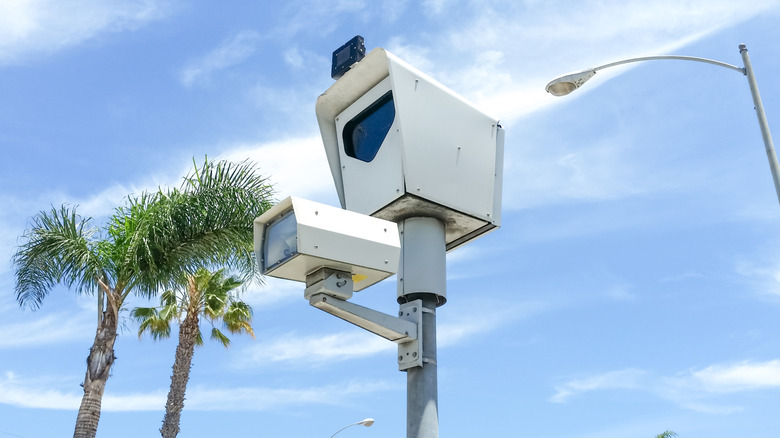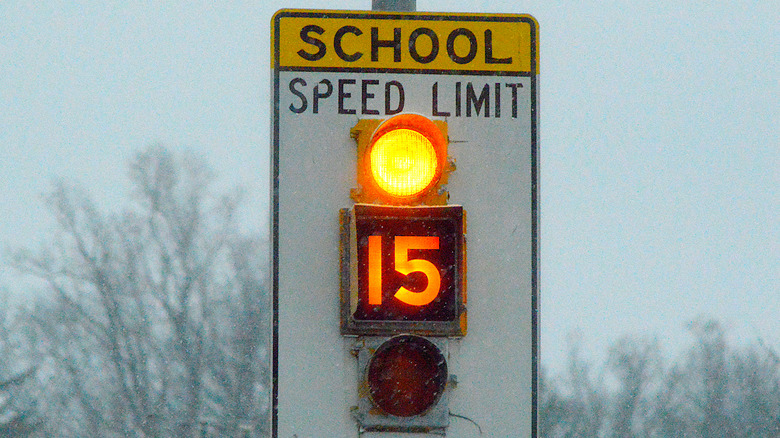Florida's Faulty Speed Cameras Cost Drivers $700K – And Now They Want It Back
Almost all drivers are guilty of speeding at least once, even if we don't want to admit it. We may be late for work, or simply enjoying a ride on an open road and not paying attention. For most of us, the consequence could be as simple as a fine, but according to the National Highway Traffic Safety Administration, speeding killed more than 11,700 Americans in 2023. Police enforcement is limited by man power, so many cities and towns use automated speed cameras to help keep drivers in check.
The technology is fairly simple: Speed cameras, which are different from the red light cameras you may have noticed near traffic lights, use radar or LIDAR to detect a driver's speed. They also have cameras to snap a photo of the license plate, and sometimes, the driver. The data is later reviewed, and if the vehicle was going above the posted limit, the driver will receive a citation. Not only do speed cameras catch offenders and help reduce accidents, they can help generate what's known as a spillover effect, where drivers are more likely to follow the speed limit no matter where they are.
The legal use of speed cameras differs from state to state, however, and as of April 2025, 24 states had authorized their use; including California, Virginia, and Florida. The sunshine state recently made the news for a school zone speed camera program that went awry. Some residents of Palm Bay, Florida were unfairly ticketed for hundreds of thousands of dollars, and now they want their money back.
Palm Bay's faulty school zone camera program
The state of Florida allows red light cameras and speed cameras, but the latter are confined to school zones. In 2024, the city of Palm Bay partnered with a company called RedSpeed USA to install 14 speed cameras near schools in Brevard County. Tipped off by residents that some of the cameras were not working properly, the local Fox 35 News station launched an investigation and found that 10 of the cameras were not properly installed.
The Florida Department of Transportation specifies how close to the road speed cameras should be placed, and the Fox 35 investigation found that 10 were too close to the curb and road. The program was also faulted for issuing tickets by the wrong sheriff's office, as well as technical difficulties. In less than a year, the cameras generated $781,709 in fines; though the city saw less than half of that, with the rest going to the vendor, the state, or the school board. After questions started rolling in about the accuracy of the cameras, 8,000 tickets were thrown out, but those that had already paid their fines have not been refunded.
RedSpeed has not admitted any wrongdoing, while the city of Palm Bay claims it was up to RedSpeed to ensure that the cameras were correctly installed. The school zone camera program has been shut down, but city officials have not yet informed drivers who paid their fines if they will be reimbursed.

